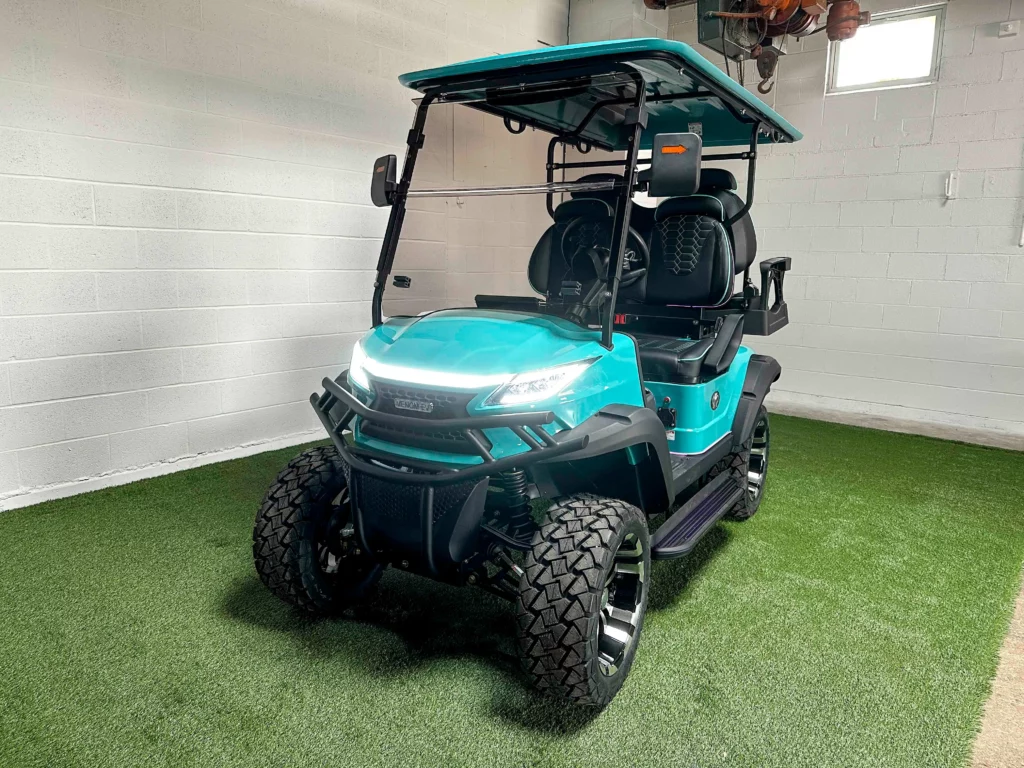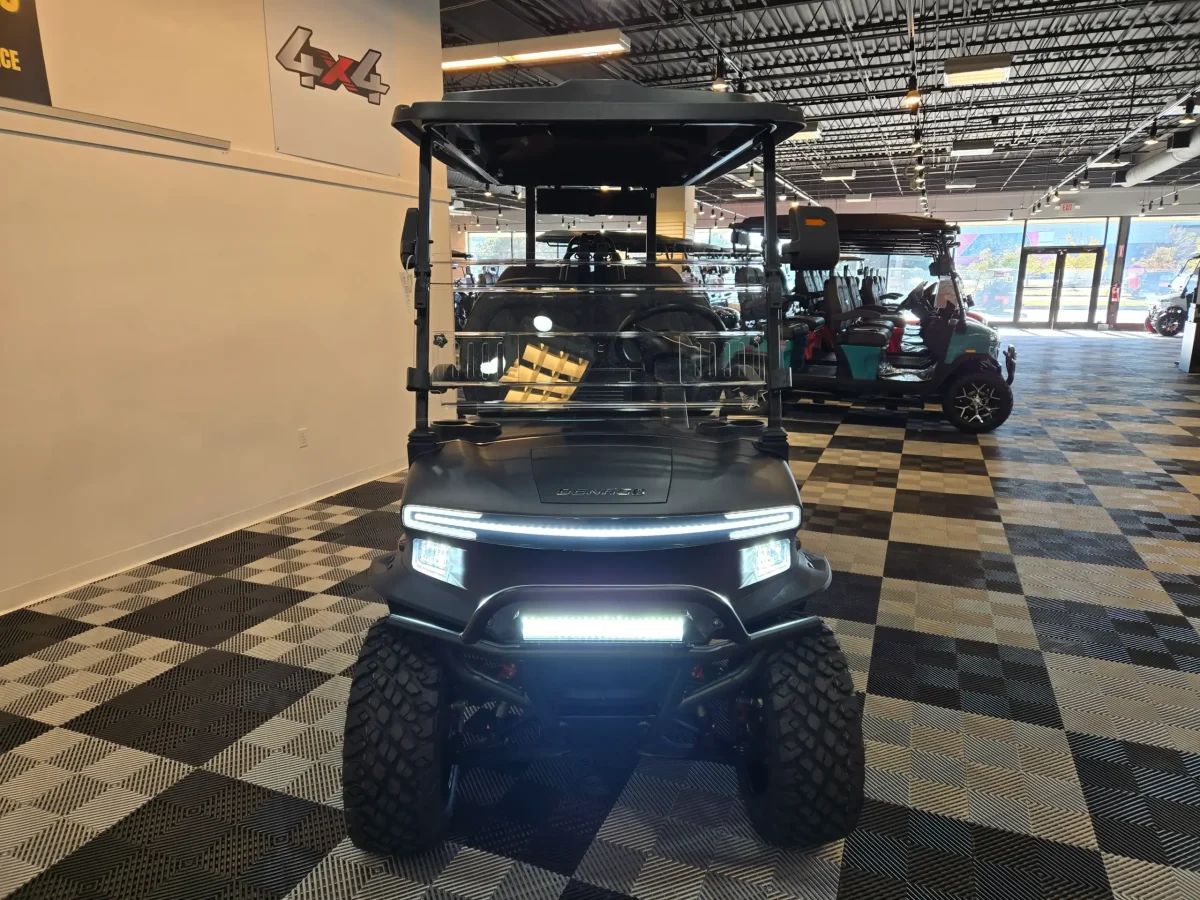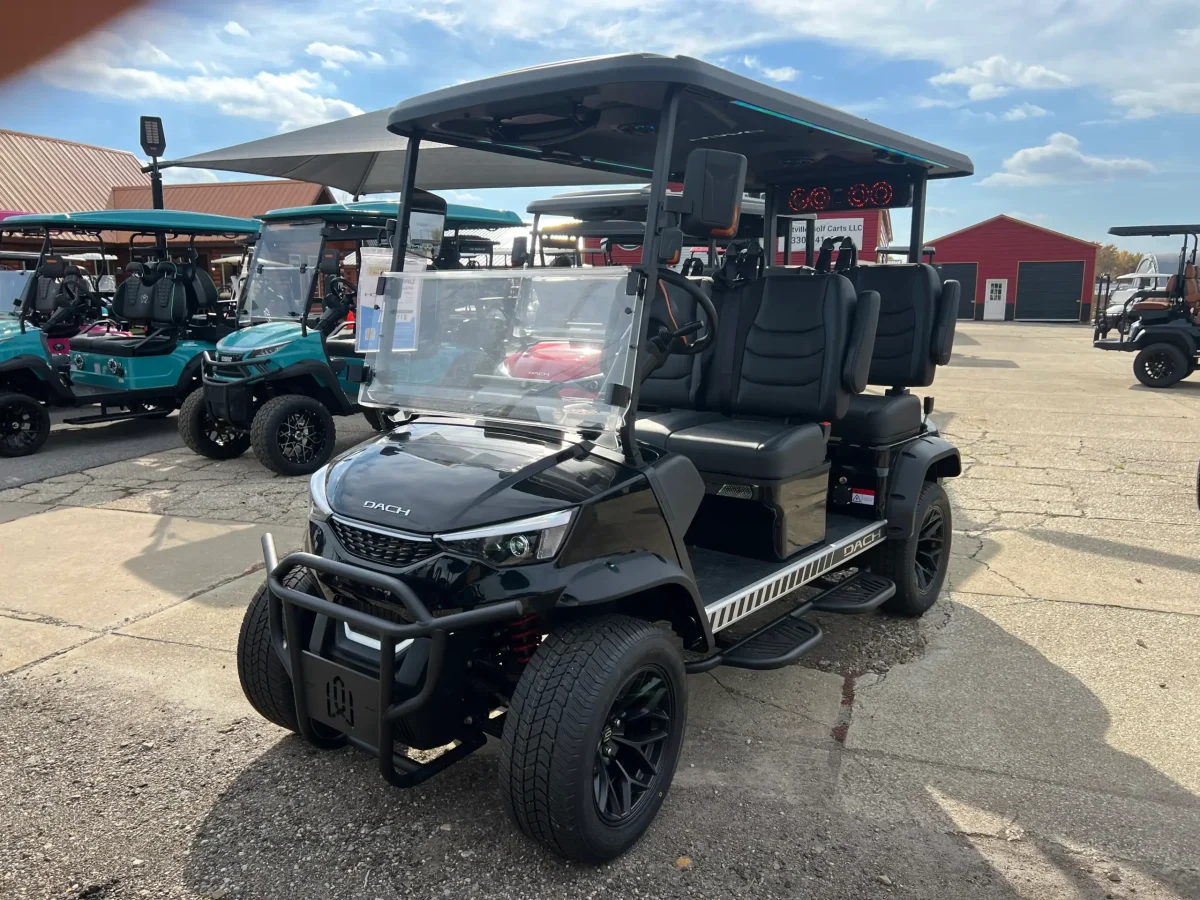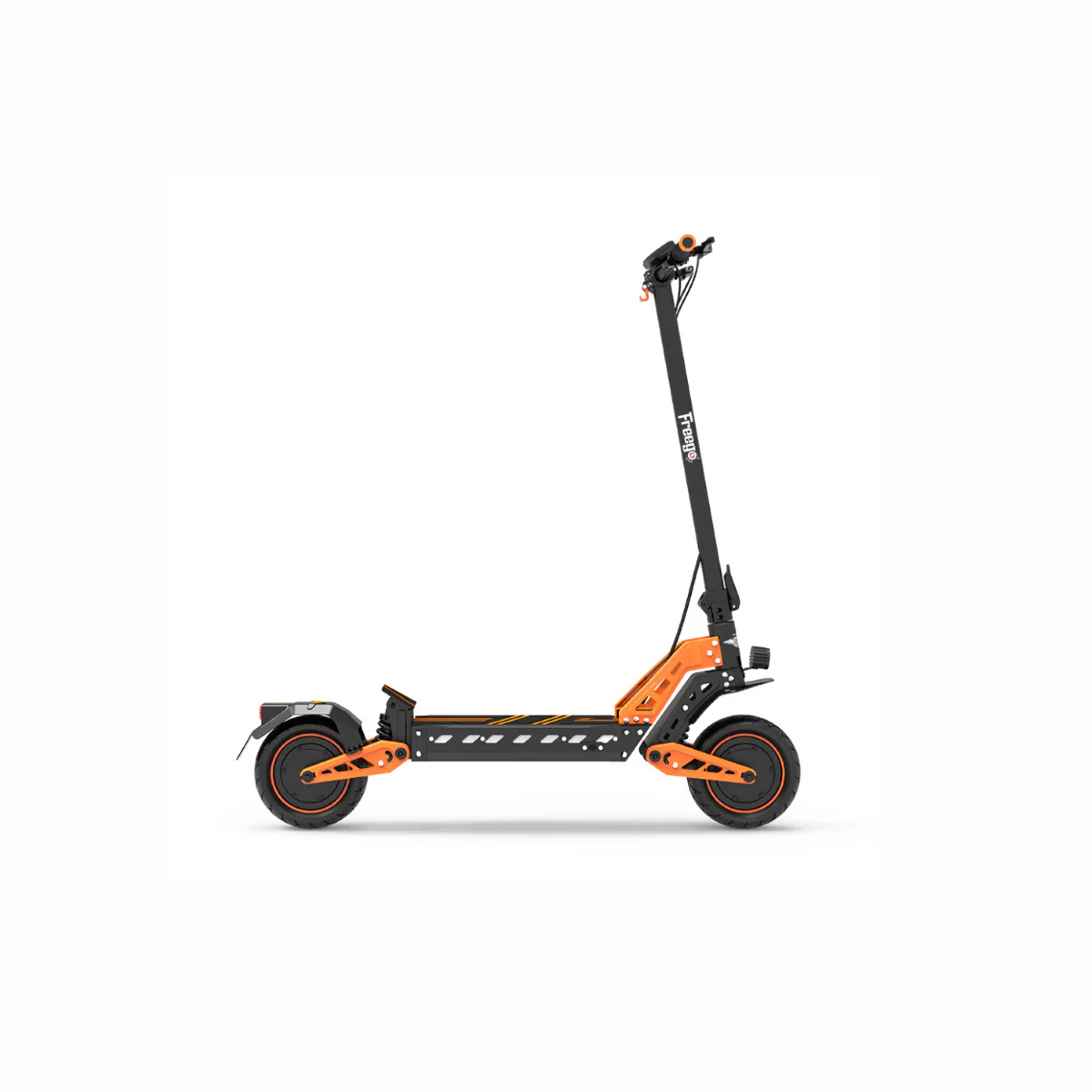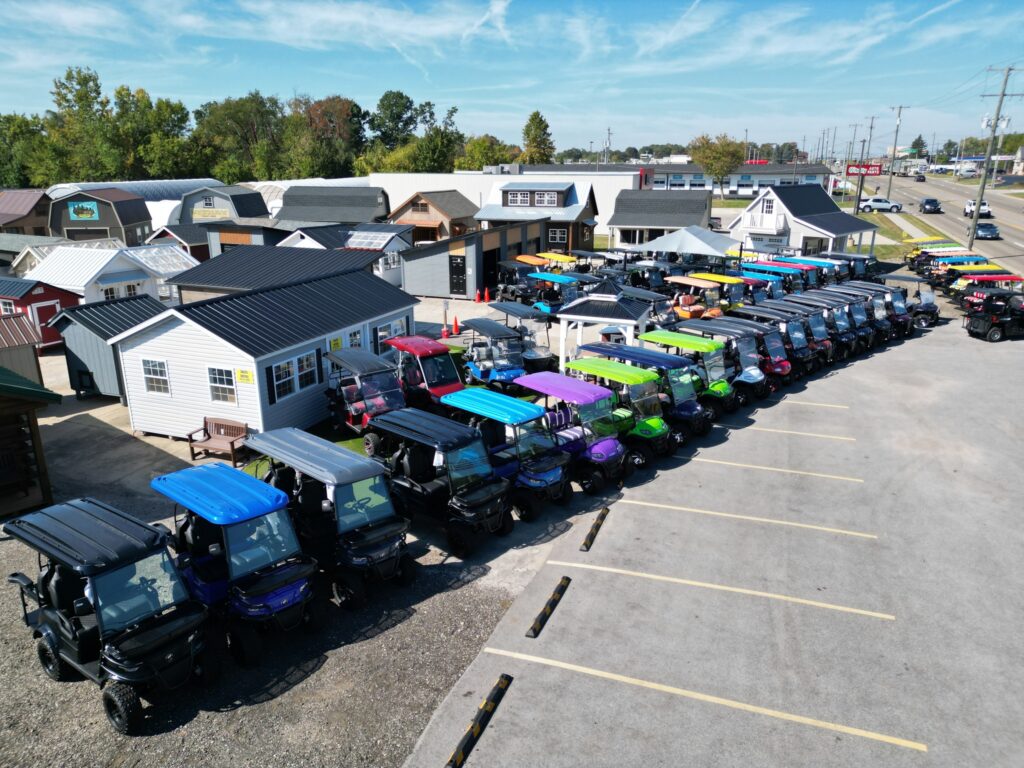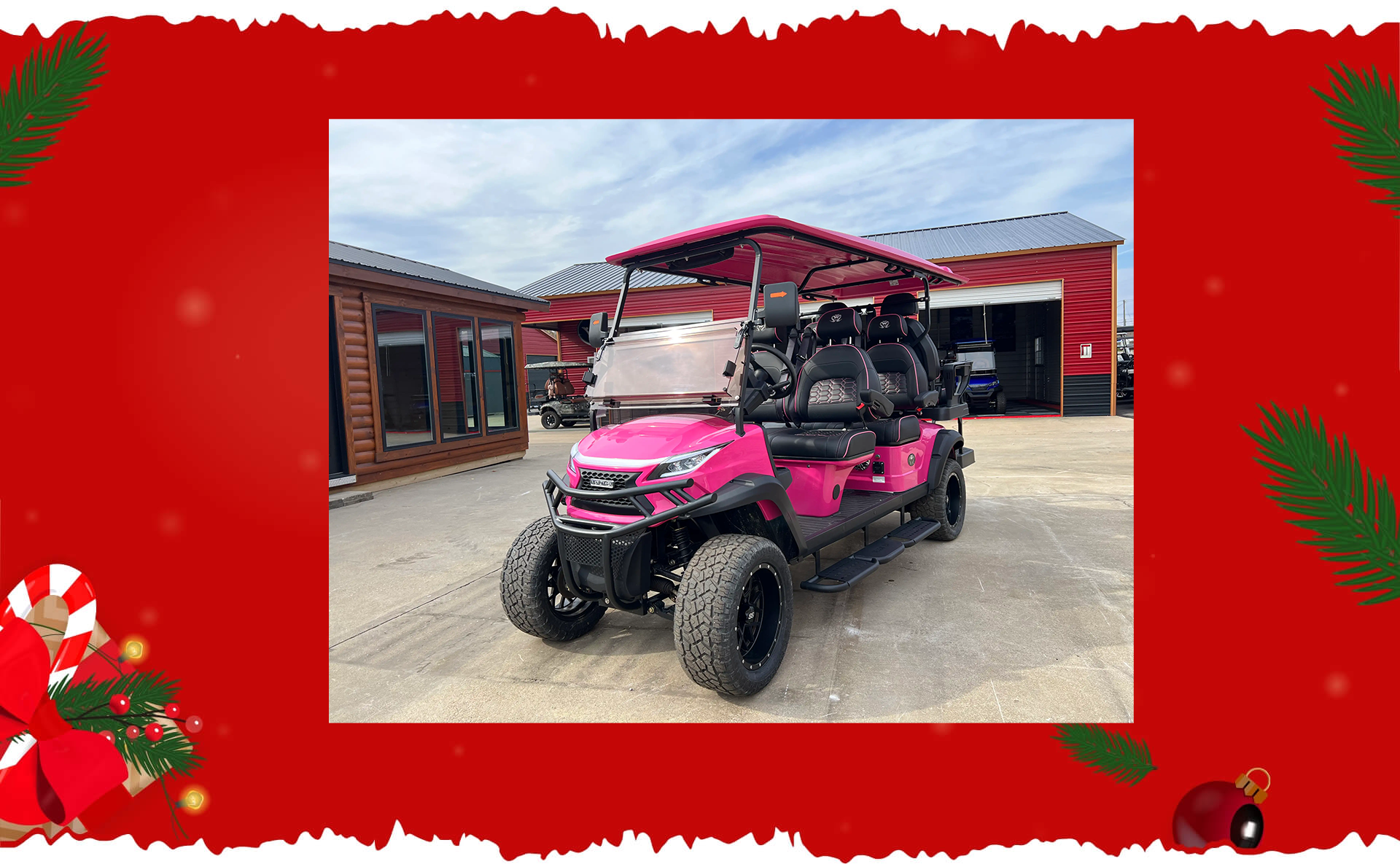Who Makes Venom Golf Carts
The rise of electric vehicles has sparked a revolution that extends well beyond passenger cars. Golf carts, once confined to fairways and gated communities, are now street-legal, tech-savvy, and full of personality. One brand making waves in this growing market is Venom — a name that evokes energy, edge, and performance. But who makes Venom golf carts, and what sets them apart in a competitive landscape?
This guide explores the story behind the brand, the design and features of the carts, and why Venom has earned the attention of both recreational riders and LSV enthusiasts.
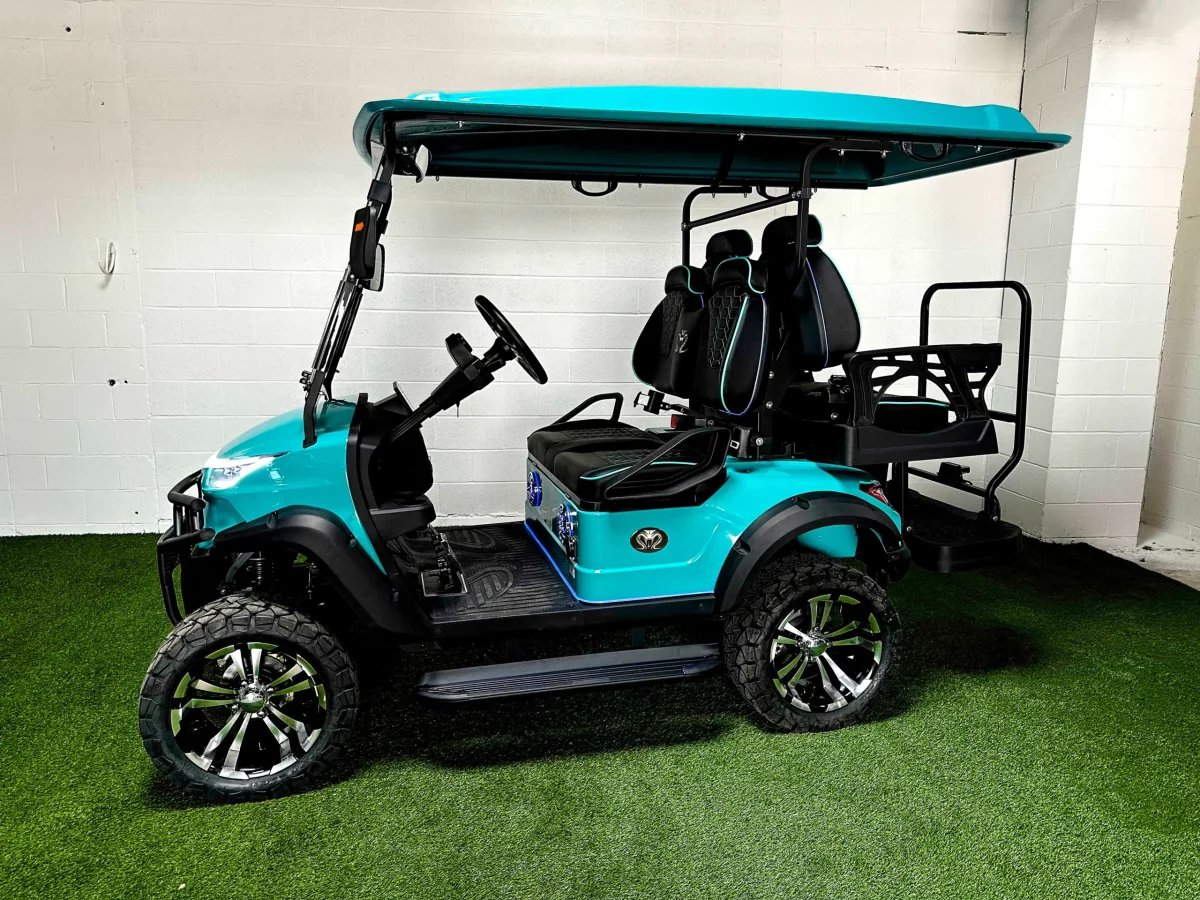
The Company Behind Venom Golf Carts
Venom golf carts are produced by Venom EV, a company committed to blending modern design with electric performance. Although not as widely recognized as legacy brands in the golf cart space, Venom EV has quickly positioned itself as a serious contender. The company takes a global approach to manufacturing, sourcing core components from Asia — including lithium-ion batteries, drive motors, and body frames — and then completing final assembly and testing in the United States.
This hybrid model keeps production efficient while ensuring carts meet U.S. safety and quality standards. According to Electrek, more EV brands are using this strategy to balance affordability with regulatory compliance.
Final assembly in the U.S. means Venom carts are built to comply with Department of Transportation (DOT) rules for low-speed vehicles. That gives them a legitimate edge in the growing LSV market, especially for buyers who want a cart they can drive on public streets.
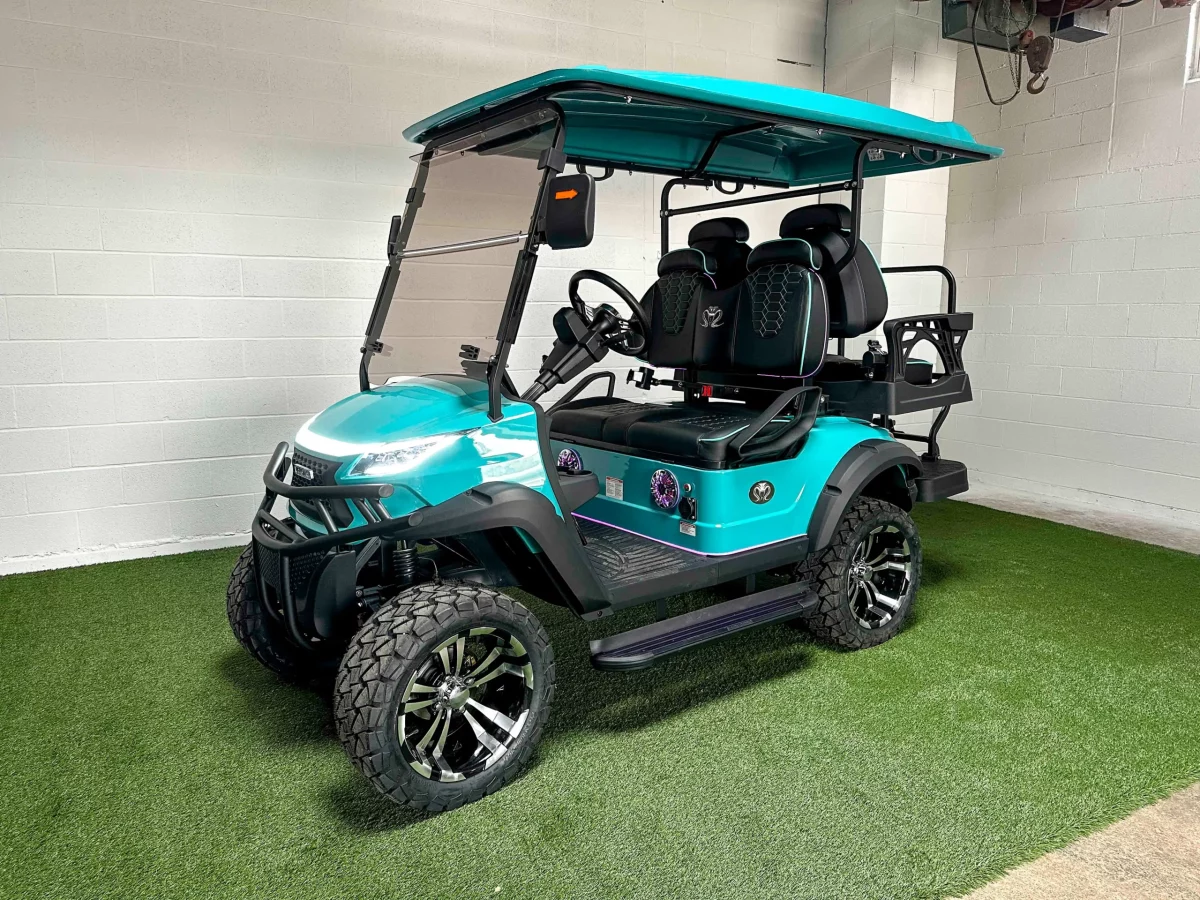
What Makes Venom Golf Carts Unique?
Venom EV carts stand out by offering features many brands consider upgrades — but with Venom, they come standard. From the first glance, these carts break away from traditional golf course aesthetics. Their designs feel bold and rugged, resembling compact off-road vehicles more than the minimalist carts of yesterday.
The engineering also reflects this elevated look. Most models come with lifted suspensions for increased ground clearance, making them suitable for trails, gravel roads, and campsite terrain. The all-terrain tires provide improved grip across various surfaces, and the steering response offers an effortless, car-like feel.
Inside the cabin, technology takes center stage. Many Venom golf carts feature digital dashboards and touchscreen infotainment systems — including Bluetooth connectivity and rear-view cameras. LED lighting systems illuminate both front and back, enhancing safety and making night driving practical. Lithium-ion batteries power the ride, offering longer life cycles and faster charging than traditional lead-acid options.
Unlike conventional golf carts, Venom carts are designed with full LSV compliance in mind. That includes seat belts, side mirrors, turn signals, brake lights, and a horn. They’re not just carts; they’re mini electric vehicles for neighborhood travel, campground use, and even short commutes.
As noted by EV Pulse, more buyers are drawn to lifestyle-driven EVs that offer versatility, not just basic transport. Venom seems to understand this shift better than most.
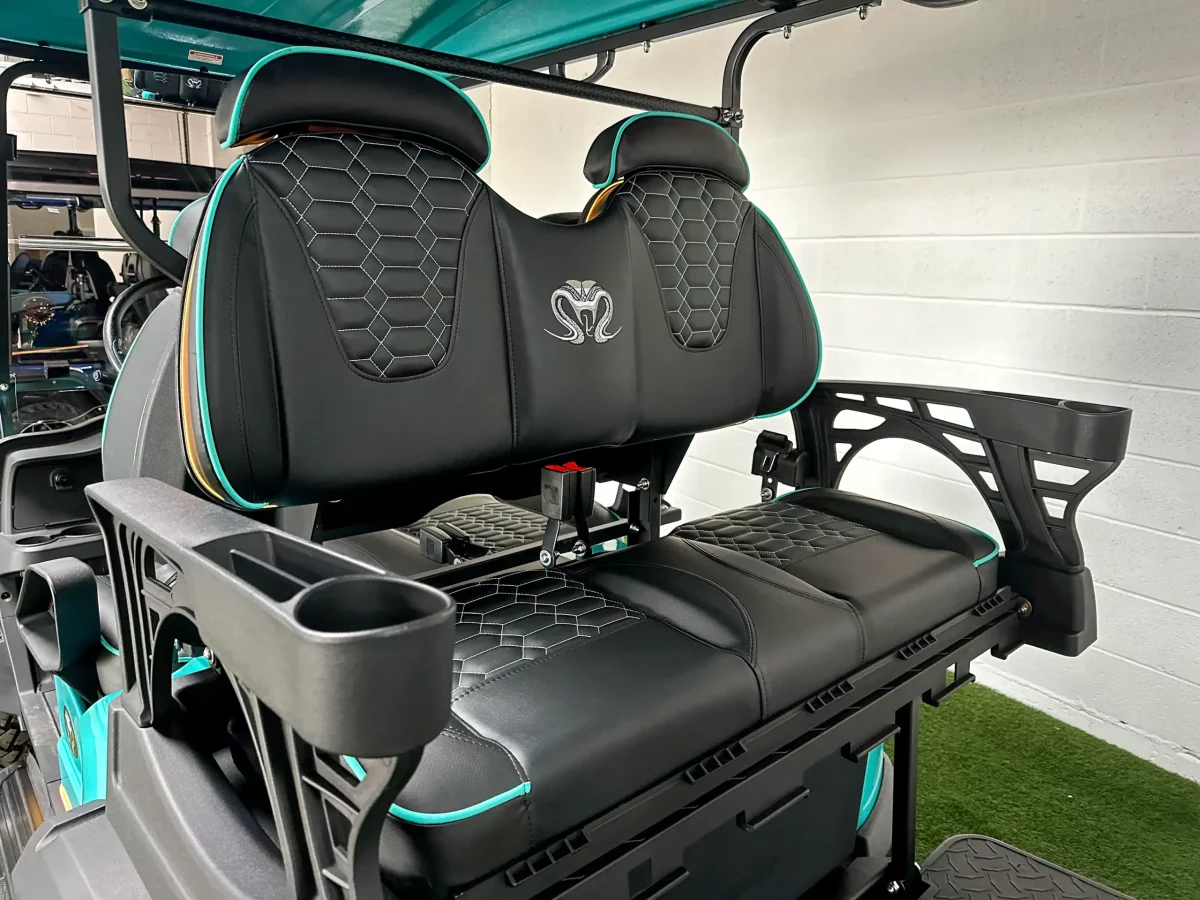
Where Venom Golf Carts Are Assembled
So where exactly are Venom golf carts made? While Venom EV works with international suppliers for core components, the company performs final assembly and testing in the United States. That ensures the carts meet federal safety standards for Low-Speed Vehicles (LSVs) and gives customers added confidence in quality control.
This U.S.-based assembly is particularly important for buyers who plan to use the cart on public roads. Every vehicle must pass inspection protocols, meet electrical standards, and be outfitted with a Vehicle Identification Number (VIN). These processes are managed at Venom’s stateside facilities before the carts are shipped to dealers across the country.
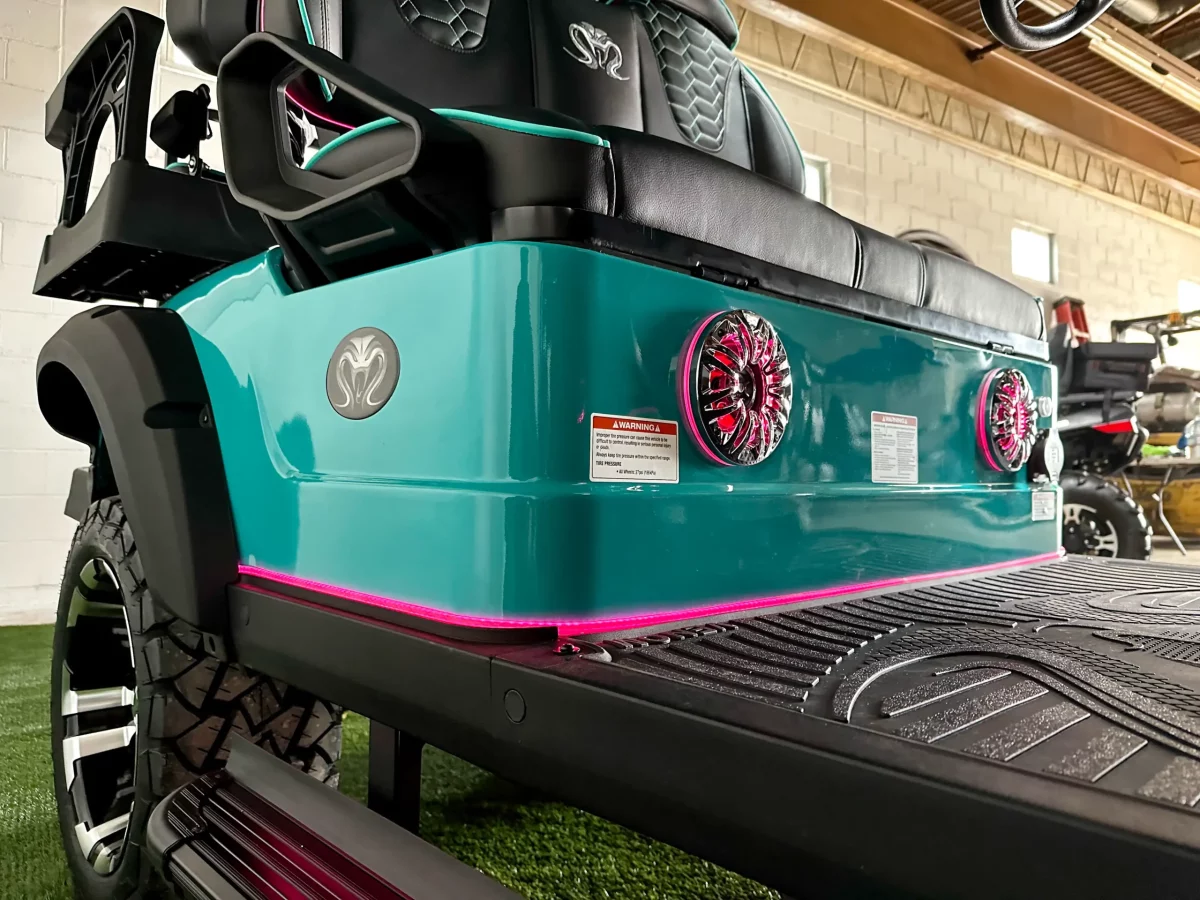
Model Variety and Customization
Venom’s growing popularity is partially due to its expanding lineup of electric carts. Each model blends utility with style, often allowing for a high degree of personalization. While the brand’s model names vary slightly by region or distributor, the most popular versions include lifted 4-seaters, extended 6-passenger rides, and compact LSVs optimized for suburban use.
Design touches like bold color options, weather-resistant seats, and custom roof styles enhance the appeal. Even with their rugged design, Venom carts retain a refined edge — one that looks just as good at the lake as it does in a residential neighborhood.
Customers also appreciate the battery and motor configurations. Many models offer high-efficiency lithium packs with smart battery management systems that extend range and reduce charging time.
The performance-to-price ratio is one of Venom’s biggest selling points. Few carts on the market include as many features — from infotainment to safety systems — at this price tier. For customers who want more than the basics without jumping into luxury EV territory, Venom hits a sweet spot.
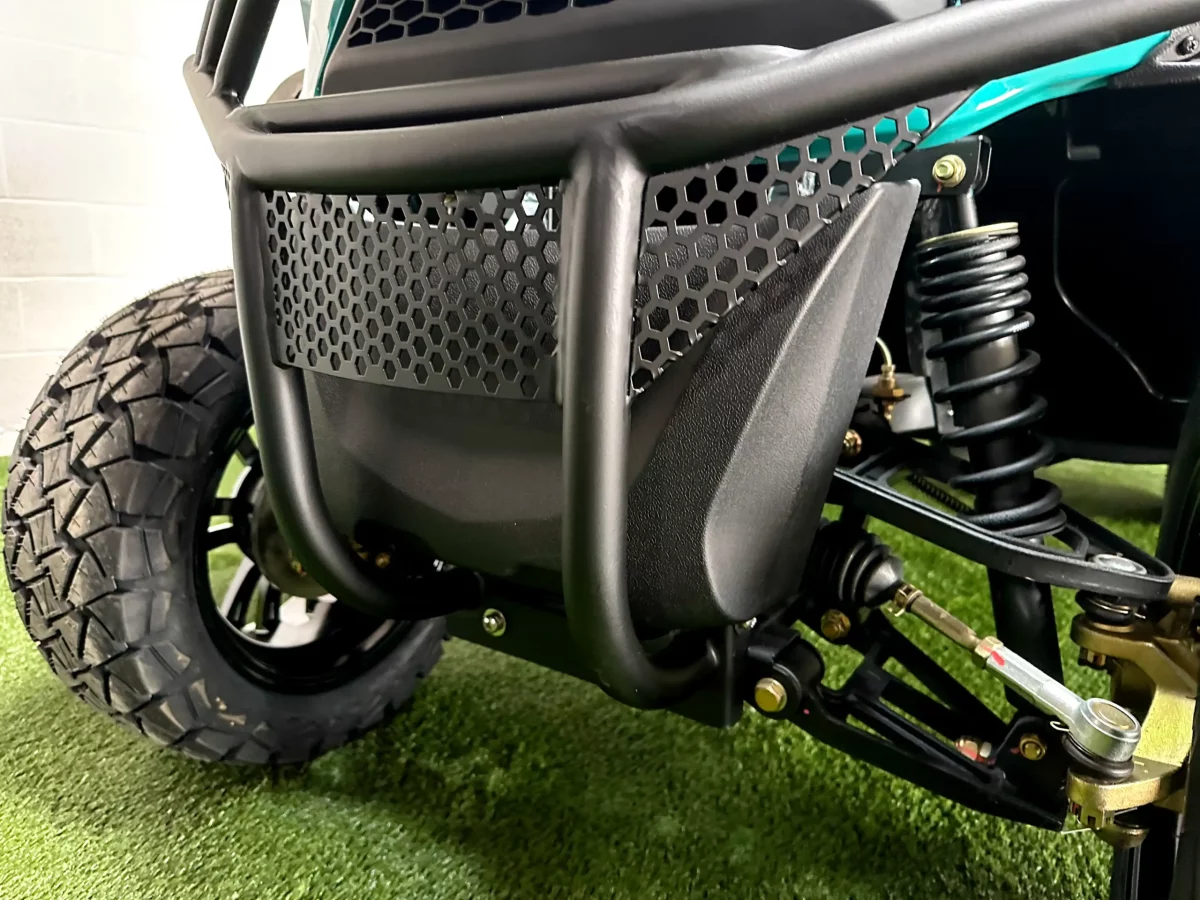
Street-Legal Capability
Venom golf carts are built to be street legal in most U.S. states, provided they meet LSV regulations. These include having working headlights, turn indicators, mirrors, parking brakes, and DOT-approved tires. All Venom carts designed for road use come with these features, as well as seat belts and windshield wipers where required.
Most states allow LSVs to operate on roads with posted speed limits of 35 mph or lower. That makes Venom carts ideal for gated communities, beach towns, private neighborhoods, and resort areas.
Before purchasing, it’s best to confirm your local and state laws. Requirements may vary — especially for insurance, registration, and age restrictions.
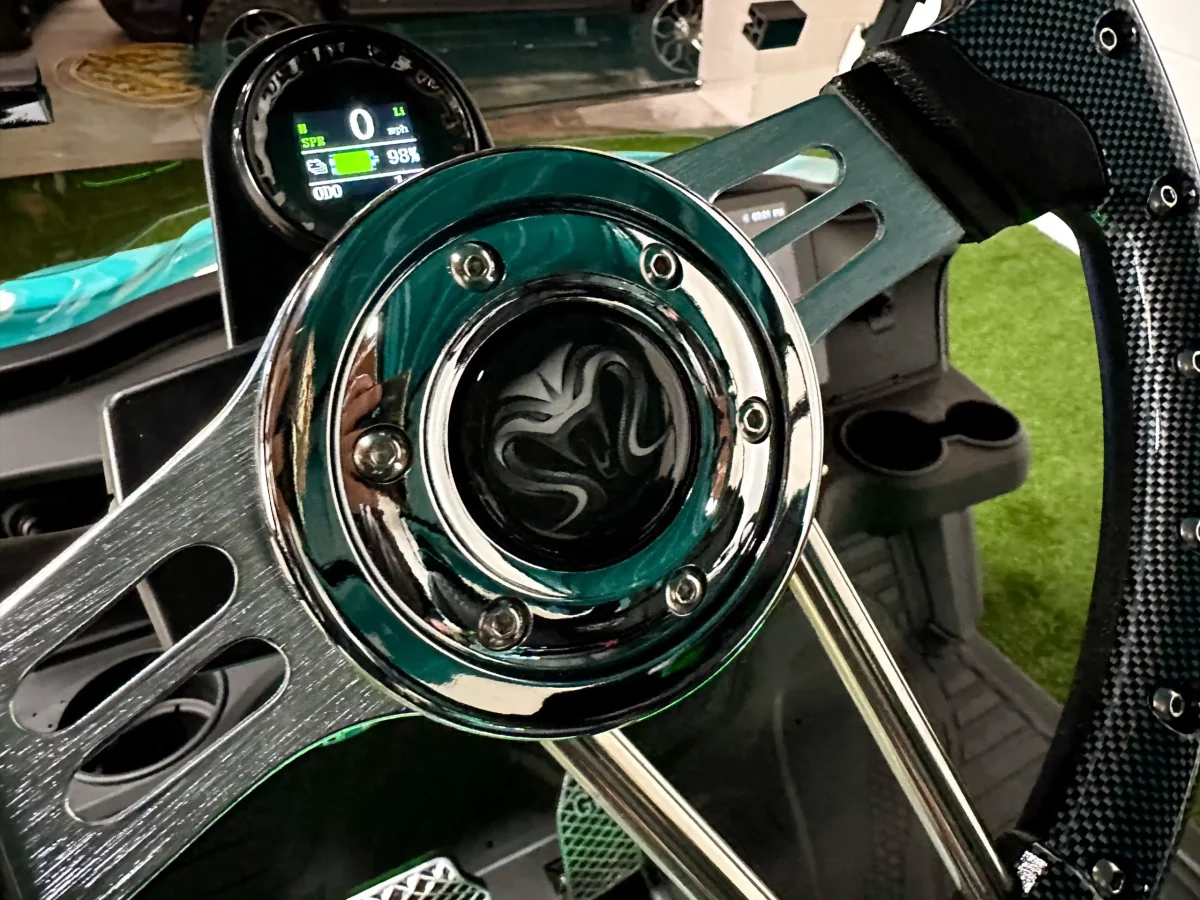
Reviews and User Impressions
Though still considered a newer player in the electric golf cart market, Venom has received praise from early adopters for its styling, comfort, and battery performance. The carts appeal especially to younger buyers who prioritize tech features and unique aesthetics. Many users say the carts feel more like miniature SUVs than glorified golf buggies.
Reviewers also note that the steering, suspension, and torque response provide a much smoother driving experience than expected. The lithium batteries deliver reliable range, often exceeding 25 miles on a full charge depending on terrain and load.
One common recommendation from buyers is to purchase from a dealer that provides post-sale service, as Venom’s nationwide support network is still expanding. But overall, customer sentiment has been positive — especially for the price point and the visual flair.
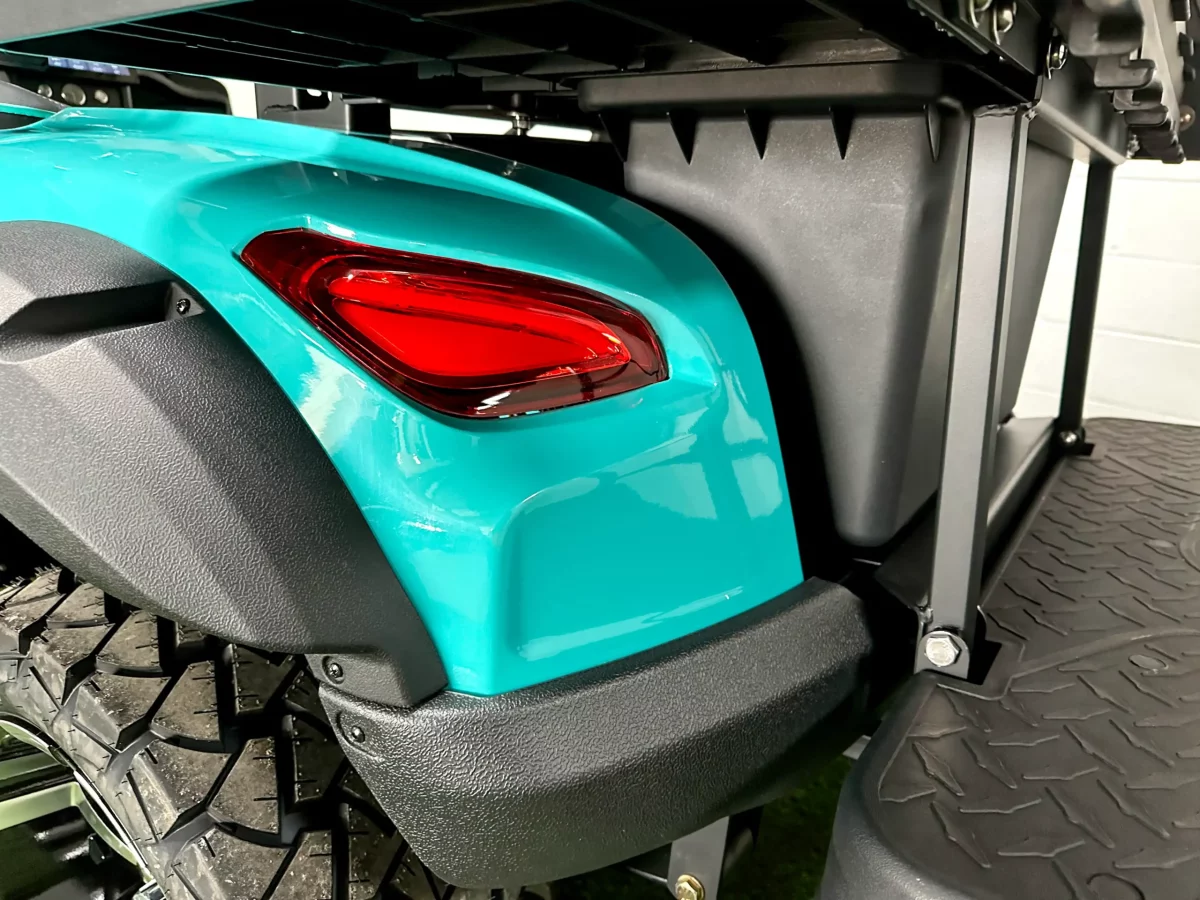
Who Makes Venom Golf Carts? The Final Word
So, who makes Venom golf carts? The answer is clear: Venom EV, a company building its brand on a foundation of modern design, smart manufacturing, and performance-packed features. With overseas production of components and U.S.-based assembly, the company has created a product that’s both competitively priced and street-ready.
Venom golf carts offer far more than your standard runabout. They combine style, safety, and technology in a way that appeals to a wide range of users — from families and campers to tech-savvy homeowners and beach town residents.
As the LSV market continues to evolve, Venom’s strategy seems to position it well for long-term success. It delivers exactly what today’s buyer wants: electric mobility with attitude.
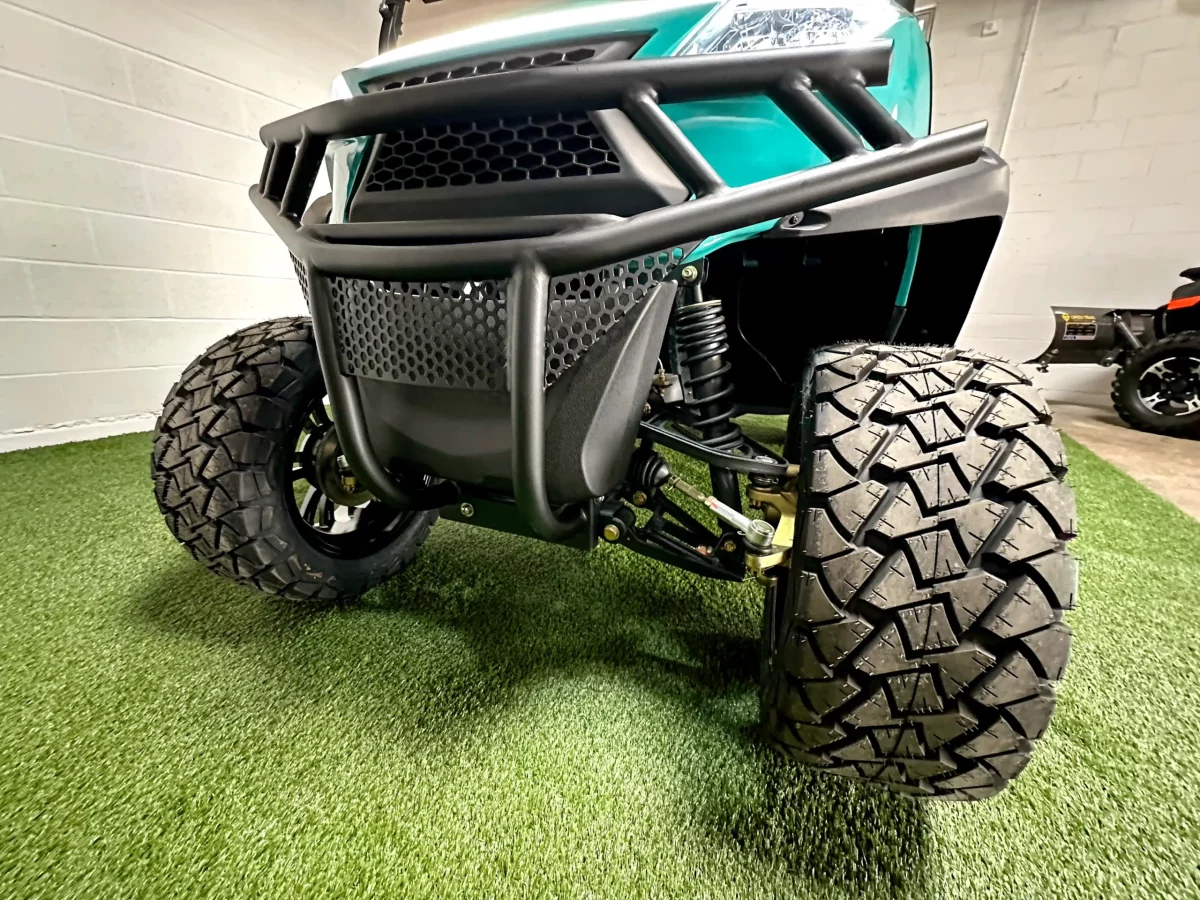
Find Venom Golf Carts at Hartville
If you’re interested in seeing Venom golf carts up close, Hartville Golf Carts offers a variety of models to explore. From the Venom EV Strike 4 to the Venom G-Series 6-Seater, their inventory includes options that align with what we’ve discussed above — powerful, road-ready carts that don’t compromise on style.
You can stop by one of their Ohio locations or browse their website to see which Venom model suits your lifestyle. Whether you’re upgrading your backyard buggy or stepping into LSV ownership for the first time, these carts deliver serious value.


